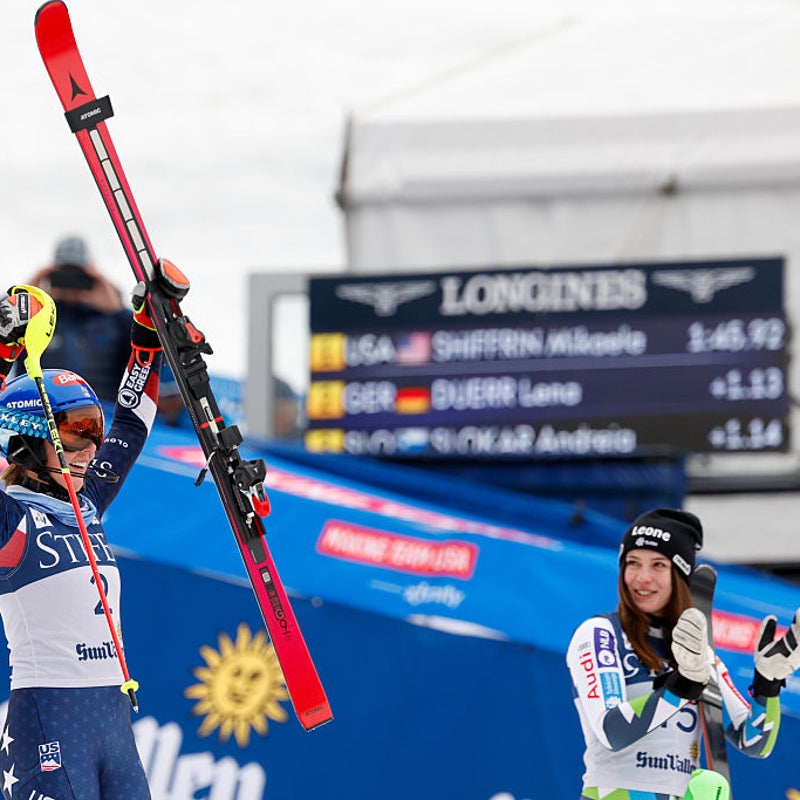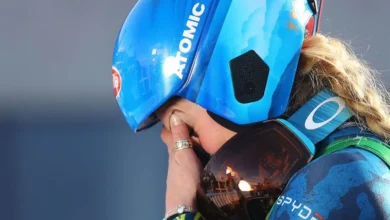What a Woman: While Navigating PTSD in the Public Eye, Mikaela Shiffrin Claims Her 101st World Cup Win

In a world where athletic dominance often overshadows personal struggles, Mikaela Shiffrin’s 101st World Cup victory is a testament to something far greater than just skiing excellence—it’s a story of resilience, vulnerability, and the sheer will to overcome.
At 29, Shiffrin is already the most decorated skier in history, yet her career has been anything but smooth. While her unmatched skill on the slopes has captivated audiences, the battles she fights away from competition have defined her even more. In recent years, the Olympic champion has been open about her struggles with PTSD, grief, and the immense pressure of being one of the most recognizable figures in winter sports.
The Weight of Loss and the Burden of Expectations
Shiffrin’s life took an unexpected turn in 2020 when she lost her father, Jeff Shiffrin, in a tragic accident. The loss devastated her, shaking the foundation of a career built on discipline and focus. For months, she questioned whether she could ever return to racing at the same level, struggling with the emotional weight of grief and the expectations of fans who had grown accustomed to seeing her on the podium.
But what made her struggle even more challenging was that it played out in public. Every victory, every setback, every tearful interview—scrutinized by millions. Unlike most who battle PTSD privately, Shiffrin had to navigate hers under the unrelenting glare of the media, where resilience is often mistaken for invulnerability.
The Journey Back: From Doubt to Dominance
Despite the darkness, Shiffrin clawed her way back. She didn’t just return—she dominated. In 2023, she became the all-time leader in World Cup victories, surpassing Swedish legend Ingemar Stenmark’s long-standing record of 86 wins. Each victory since has only cemented her legacy, but her journey has never been solely about the numbers.
Fast forward to today, and Shiffrin has now secured her 101st World Cup victory. It’s not just another win—it’s a defining moment, proving that mental scars don’t have to derail greatness. She has spoken openly about the anxiety that still lingers, the days when the weight of expectations feels unbearable, yet she continues to push forward.
A Role Model Beyond the Slopes
Shiffrin’s story is about more than just skiing; it’s about the courage to be vulnerable. At a time when mental health in sports is gaining more attention, she is leading by example—not just by speaking out, but by showing that success doesn’t mean the absence of struggle.
Her 101st victory isn’t just another statistic in an already legendary career. It’s proof that athletes are more than their medals, that mental battles are just as grueling as physical ones, and that strength isn’t measured by how well one hides their pain, but by how they rise despite it.
Mikaela Shiffrin isn’t just a champion on the slopes—she’s a champion of resilience, a beacon for those fighting their own silent battles, and a reminder that even in the face of unimaginable grief, greatness endures.





